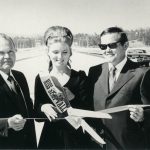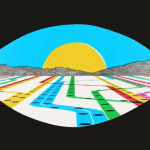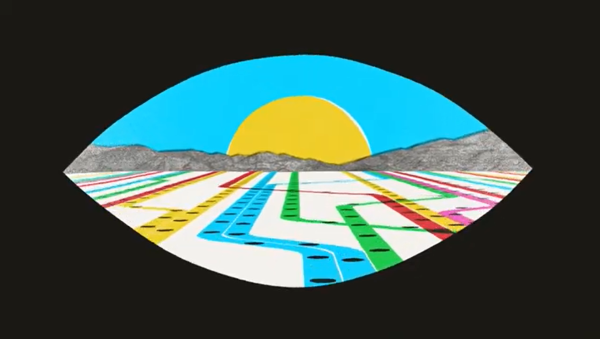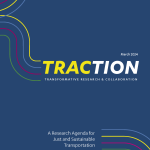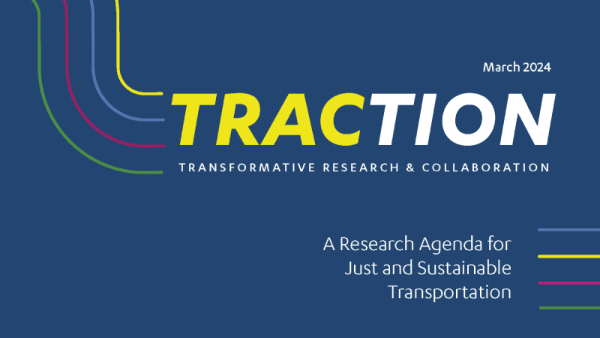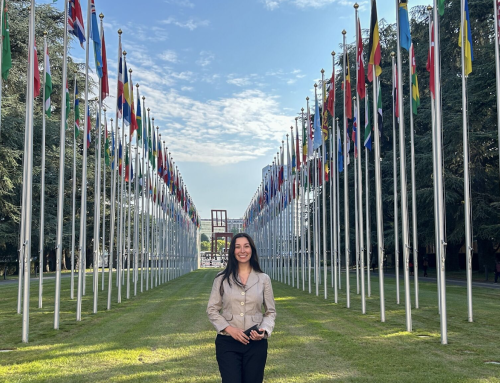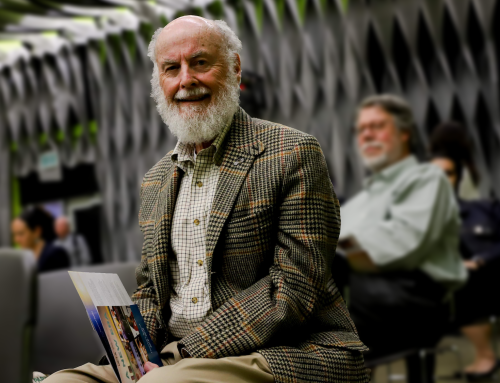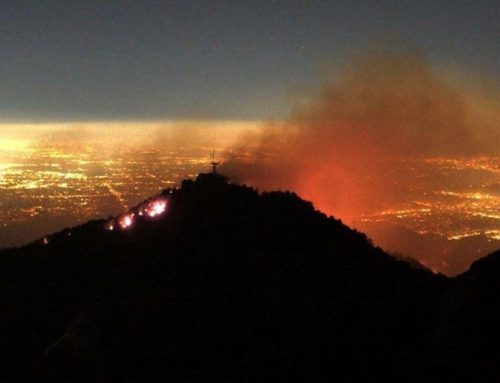Student projects on bus stop amenities, freeway removal win ITS capstone awards
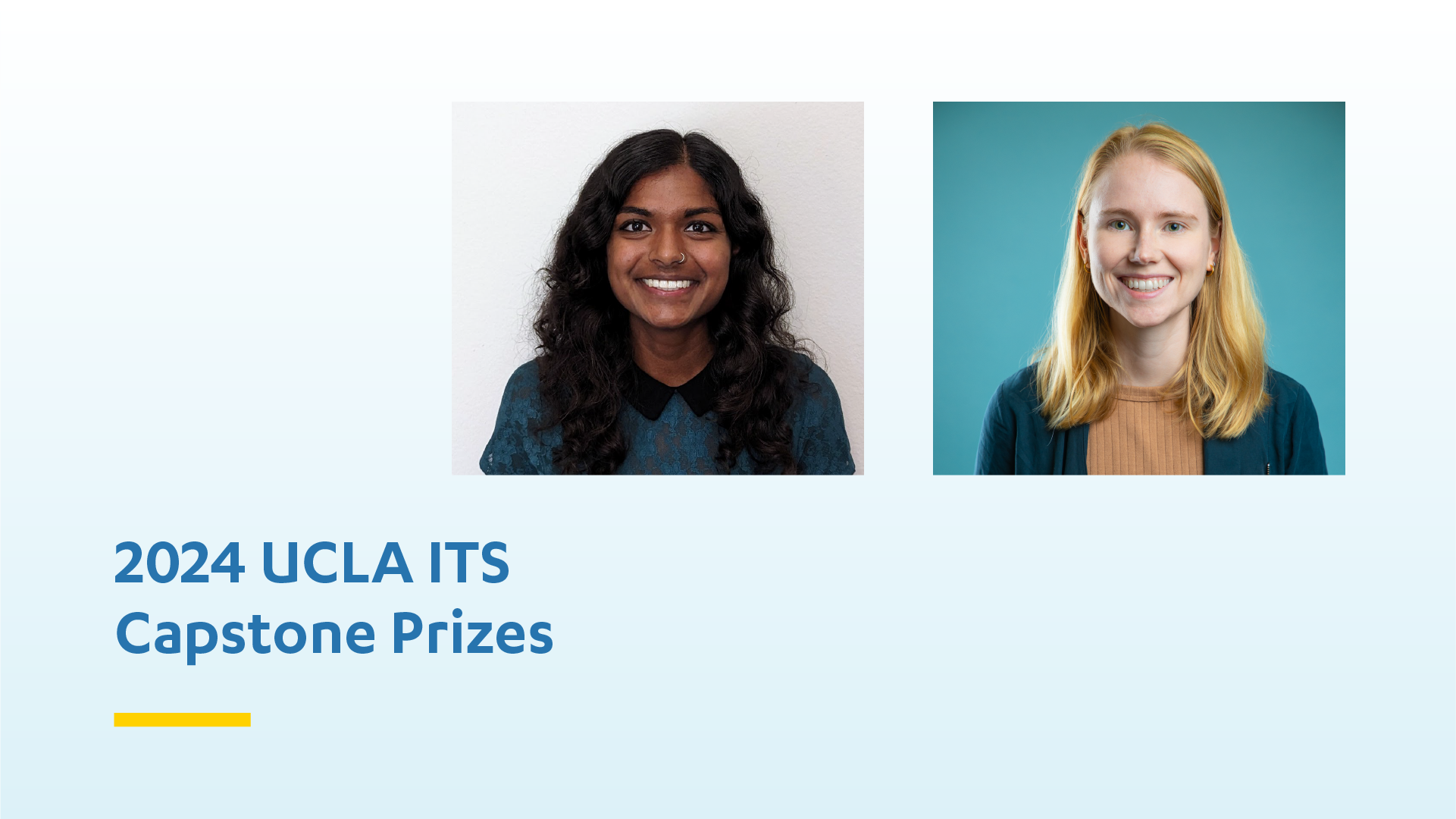
As part of their master’s degree requirements, students in the Luskin School of Public Affairs complete yearlong capstone projects on behalf of professional clients on a wide range of topics.
The UCLA Institute of Transportation Studies supports capstone projects that address important transportation-related issues. Every spring, UCLA ITS also gives awards to students who complete exceptional research products. In the past, student projects have been meaningful to their clients as well as the larger transportation field.
UCLA ITS recognized seven projects this year. The Capstone Grand Prize went to Monisha Reginald, MURP ’24 for her work on shade and lighting at bus stops in Los Angeles. The Excellence in a Transportation Equity & Justice Capstone Prize went to Carolyn Pugh, MURP ’24 for her case study analysis of a freeway removal project in Rochester, New York.
 ITS Grand Prize
ITS Grand Prize
Adequate shade and nighttime lighting at bus stops are essential for addressing gender equity in transit environments. Even as Los Angeles makes plans to add new bus shelters at high priority locations, constraints like narrow sidewalks limit where shelters can actually be built.
Aiming to highlight the barriers to improving bus stop amenities for her client, Kounkuey Design Initiative (KDI), Reginald completed a citywide analysis of bus stops and an in-depth study of nighttime illuminance at bus stops in three neighborhoods: Sawtelle, Sun Valley, and Watts.
Residents of Watts informed KDI that local streetlights seemed dim, but existing data mainly covered streetlight locations, hiding any broken or poorly-lit streetlights. However, Reginald’s measurements of nighttime illuminance confirmed that bus stops in Watts are significantly less likely to have adequate lighting.
“I really do believe that data-informed planning has the potential to increase equity, accountability, and transparency, but we have to invest in data collection that accurately reflects people’s experiences for any of that to be realized,” Reginald said.
Reginald’s overall findings point to an inequitable distribution of bus shelters throughout Los Angeles. Her recommendations include investing in innovative bus shelter designs and incorporating new metrics into the shelter prioritization framework. Reginald hopes that her project can help shift the conversation about bus shelters so that lighting equity is considered equally as important as shade equity for riders.
Madeline Brozen, deputy director of the UCLA Lewis Center for Regional Policy Studies and the advisor for this project, praised Reginald’s creative research methods.
“Monisha’s project brought me such joy as a researcher and an advisor,” she said. “Her project looked at issues from the scale of one bus stop to the scale of the City of Los Angeles, demonstrating her commitment to seeing the tiny details and the big picture.”
Reginald plans to continue using data and analytics to guide planning decisions that improve the experience of taking public transit. Following graduation, she will be joining the Operations Analytics team at the Massachusetts Bay Transportation Authority in Boston.
 Excellence in a Transportation Equity & Justice Capstone Prize
Excellence in a Transportation Equity & Justice Capstone Prize
Rochester’s Inner Loop Freeway-to-Boulevard Project | Carolyn Pugh
Freeway removal and redesign projects have been gaining momentum across the U.S. in response to the historical, large-scale harm of their construction in many cities, specifically for Black and brown communities. They can involve a freeway being converted into mixed-use areas, bike lanes, or greenspace.
At the direction of her client, the Office of Community Revitalization at the U.S. Environmental Protection Agency, Pugh completed a comprehensive case study analysis of one such freeway removal project in Rochester, New York: the Inner Loop East Transformation project. She examined how the project affected residents’ quality of life and how the community engagement and project design contributed to its outcomes.
Pugh compared data from the surrounding area in the years before and after the project was completed. She also interviewed planners, advocates and residents. Pugh determined that the Inner Loop East Transformation project successfully improved mobility and connectivity. However, she also found that it likely contributed to gentrification in the area and the displacement of Black and low-income residents.
In light of these and other findings, she identified key lessons that can be applied to future freeway removal projects. For one, community engagement around land use should set clear priorities related to housing density and type, public gathering spaces, and specific community needs. She also noted that stronger air pollution mitigation efforts will be needed during the construction phase of freeway removal projects.
Pugh gained invaluable insights from her collaborators throughout the course of the project.
“People were so willing to offer up their time and expertise — from the many folks in Rochester I spoke with to researchers and experts at Luskin, the EPA, and beyond,” she said. “I was able to work with and consult researchers who focus on the neighborhood impacts of freeways, freeway removal, and transportation infrastructure investments, including Dr. Regan Patterson and Dr. Paul Ong.”
Patterson, assistant professor of civil and environmental engineering, served as the primary faculty advisor for the project.
Highlighting Pugh’s research methods, Patterson said: “I really commend how she was intentional about centering Rochester community members throughout her project. This not only added important insights, but also ensured a report that is useful and meaningful for both her client and community.”
2024 Capstone Prizes
Recent Posts
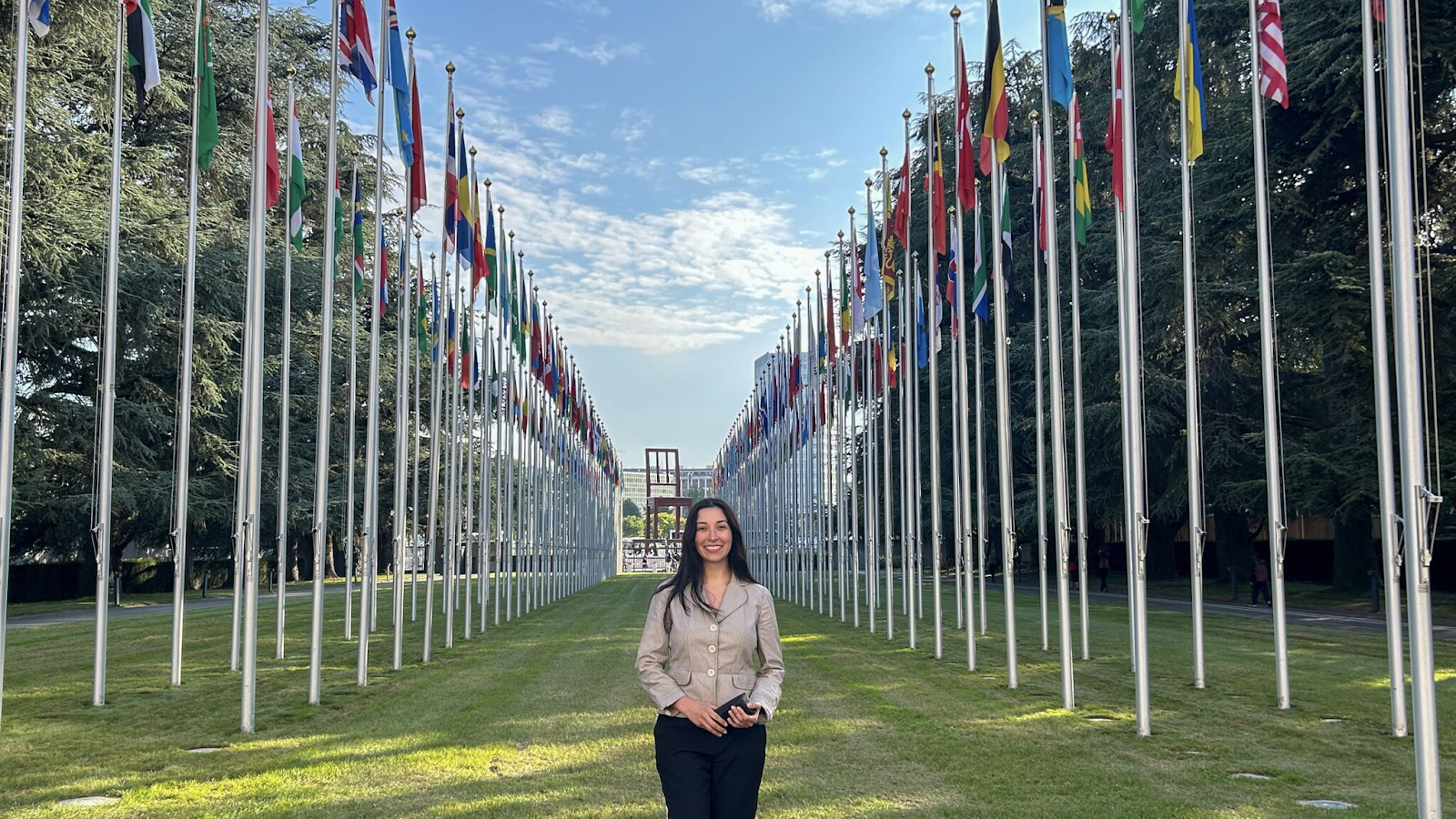
MURP student ‘speaking up’ for equity in transportation and planning
Veronica De Santos spent a semester abroad in Geneva, where she called on global leaders to invest in underrepresented voices shaping the future of sustainability and transportation.
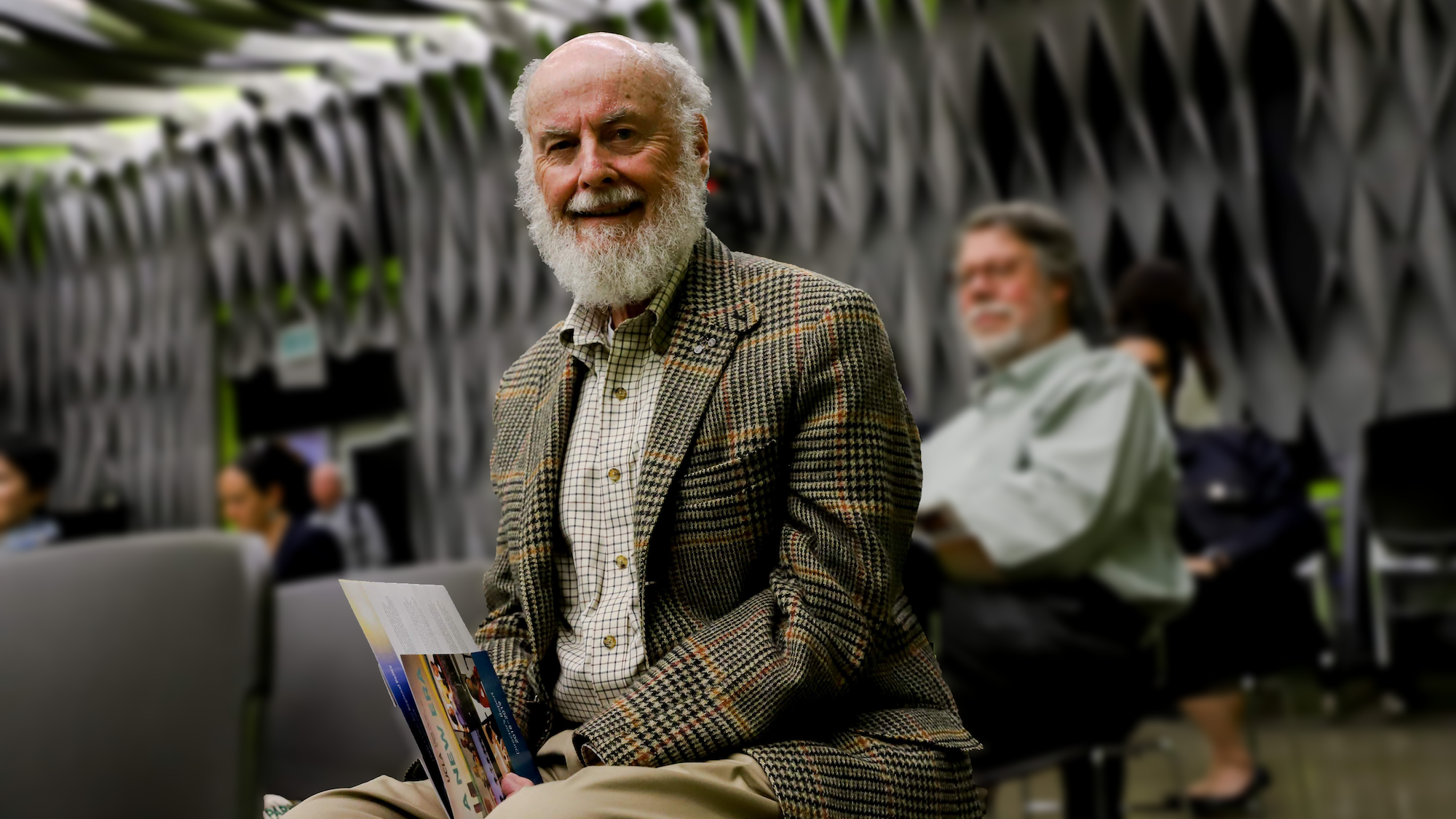
Remembering Donald Shoup
UCLA ITS’ 2nd director and a visionary scholar reshaped cities with his pioneering work on parking, inspiring legions of ‘Shoupistas’ and lasting change.


